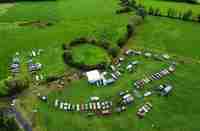Nearly six years on from a period of personal and career trauma, EMMETT CORCORAN hails the life and times of Michael McDowell, and speculates that the former PD Leader could be the person to succeed Michael D Higgins as President of Ireland….
Michael McDowell SC quite literally saved my life. I am not sure that even he knows that, but the fact remains that he did – not in a Hollywood, cliffhanger way, but in a far more meaningful and enduring manner, which I will touch on later in this article.
With that said, to suggest this piece is entirely objective would be dishonest. Nevertheless, I will endeavour to be as balanced as I can while recounting the life and career of a man I know to be one of Ireland’s finest legal and political minds.
Known among his peers as ‘The great man,’ Michael McDowell SC has earned this title through decades of extraordinary contributions to Irish society. Whether in the courtroom, the Oireachtas, or the public sphere, his commitment to justice, civil liberties, and the rule of law has been unwavering.
From law to politics
McDowell was born in Dublin in 1951, educated at Gonzaga College and University College Dublin, before graduating from King’s Inns in 1974. Called to the Bar that same year, his skill as an advocate quickly earned him respect. By 1987, he had achieved the rank of Senior Counsel, cementing his reputation as one of Ireland’s most formidable legal minds.
While practising law, McDowell played a vital role in shaping the legal profession itself. He served as chairman of the Incorporated Council of Law Reporting for Ireland and was a long-standing member of the King’s Inns council. His ability to master complex legal issues while remaining committed to justice defined his early career.
But McDowell’s ambitions extended beyond the courtroom. Initially a member of Fine Gael, he became disillusioned with the party’s direction. In 1985, he co-founded the Progressive Democrats (PDs), a party that sought to inject a reformist zeal into Irish politics, even if its legacy remains contested. Elected as a TD for Dublin South-East in 1987, he served during some of the most pivotal moments in the nation’s modern history.
Legal achievements, my personal experience
McDowell’s legal career is one of the most distinguished in Ireland, characterised by his willingness to tackle difficult and, at times, unpopular cases. One such case I had the displeasure of being a party to was Corcoran v Garda Commissioner. This was both deeply personal to me and profoundly significant for Irish journalism.
For four years, I endured a harrowing legal battle against the State to protect journalistic sources, a cornerstone of press freedom. McDowell, alongside Morgan Shelly BL and Carter Anhold Solicitors/Phelim O’Neill Solicitors, represented me without hesitation, standing firm against the full weight of the State. They believed in the justice of the case, and they were vindicated. The Supreme Court unanimously ruled in my favour, establishing a legal precedent that now protects journalistic sources in Ireland.
During this period, I was fighting battles on multiple fronts. The legal case itself was daunting, but it coincided with an unexpected fight against testicular cancer (which thankfully I also won with the help of great nurses and doctors).
The traumatic events that unfolded for me following the now infamous incidents at Falsk outside Strokestown in December 2018 nearly finished me.
For a long time, I regretted having the youthful journalistic zeal to cover the news story of the criminal incident that took place at the repossessed farmhouse. To this day, I receive regular death threats from shady voices with northern twangs. And for four years, I had to fight the Garda Commissioner to protect my sources, who, for the avoidance of doubt, were not actually involved in the criminality that took place.
In fact, I think this is the first time, nearly six years later, that I have been able to comment publicly on the events without fear of recriminations from either the State or the criminal elements involved. Or maybe I just care less about what becomes of me and care more about what is right – and what is right includes rights such as freedom of the press and freedom of speech. I will qualify this by saying that these rights are balanced with responsibilities, something some people tend to forget, but that is a very different article for another day.
I now see this experience as a defining challenge of my life. At times, I wanted to give up in the most final sense of the phrase. But the faith I developed in knowing I was doing what was right, coupled with McDowell’s confidence in the righteousness of the case, saved me from my own fragile self. His clarity of purpose and moral courage cannot be overstated.
When I talk about the infectious confidence that McDowell exuded, I must clarify that it was quiet and unassuming, never cocky or presumptive. It was and, I guess, still is akin to an ‘aura’ of sorts. I am, in a sense, unable to articulate exactly how this ‘aura’ of selfless righteousness and unassuming confidence affected me, but it did. And the results, well, they are self-evident.
A reforming minister
McDowell served as Attorney General from 1999 to 2002 before becoming Minister for Justice, Equality and Law Reform. His tenure as minister was transformative. Among his many achievements were sweeping reforms to the Garda Síochána, including the establishment of the Garda Ombudsman Commission to bring accountability and modernisation to policing in Ireland.
He also advanced civil liberties, sometimes at personal and political cost. Though often cast as a controversial figure, McDowell consistently prioritised the rule of law and the protection of individual freedoms over political expediency.
The 2024 referenda
McDowell has remained at the forefront of national debates in recent years. His critical role in the 2024 constitutional referenda stands out as one of his most recent triumphs.
The first referendum, commonly known as the ‘family referendum,’ proposed to amend the constitutional definition of the family, potentially undermining protections linked to traditional family structures. The second, the ‘care referendum,’ sought to recognise care work in the Constitution, but the proposals were criticised as poorly conceived and legally fraught.
McDowell’s opposition to these changes resonated strongly with voters. His clear, precise analysis of the constitutional implications was unmatched among public figures, and the electorate rejected both referenda by a decisive three-to-one margin. These victories owe much to McDowell’s ability to articulate the stakes clearly and persuasively.
Defending against bad legislation
Another recent battle saw McDowell lead opposition to flawed hate speech legislation. While recognising the need to address genuine incitement, he highlighted the bill’s overly vague language and its potential to burden the courts unnecessarily.
McDowell’s interventions ensured key amendments to the legislation, particularly regarding freedom of expression. Though the bill ultimately passed, his efforts mitigated its most problematic aspects and underscored his enduring commitment to safeguarding fundamental rights.
A President in waiting?
As the 2025 presidential election approaches, speculation about McDowell’s candidacy has intensified. His deep understanding of the Constitution, combined with his ability to articulate complex ideas in clear and accessible terms, sets him apart as a potential candidate.
Critics often point to his brusque manner or his uncompromising positions, but these qualities reflect his integrity. He does not bend to convenience or popular opinion; instead, he stands firmly for what he believes is right. This is precisely the type of leadership the Irish presidency could benefit from: a steady hand, a principled voice, and a leader unafraid to act in the nation’s best interests.
Conclusion
Michael McDowell’s career spans law, politics, and public service. He has fought tirelessly for justice, civil liberties, and good governance with a clarity of purpose that is rare in Irish public life. Whether as a barrister, minister, senator, or potential president, his contributions to Ireland are unparalleled.
For those of us who have witnessed his impact first-hand, there is no doubt: Michael McDowell is a great man, and his legacy will endure for generations to come.
So, my objectivity with respect to the Seanad election for the National University of Ireland (NUI) panel clearly obliterated by this article, I can confirm that while earning some throwaway accreditations as a mature student, I have never obtained a university degree through the National University and therefore cannot vote for Senator McDowell.
I am making a personal and totally journalistic appeal to those who want competency in the Upper House of our bicameral legislature and who have a vote on the NUI panel to please vote for Senator McDowell as well as our two local ‘Rossie candidates’, Mairead Kenny and Hilary Beirne whom I have gotten to know recently and both of whom are eminently capable legislators should they be elected; however, in my humble opinion, Irish politics, law, and public life would be much poorer without the eminent presence of Senator Michael McDowell SC. But I would also like to see some regional balance on the NUI panel, so, thank God for the proportional representation single transferable vote system.






